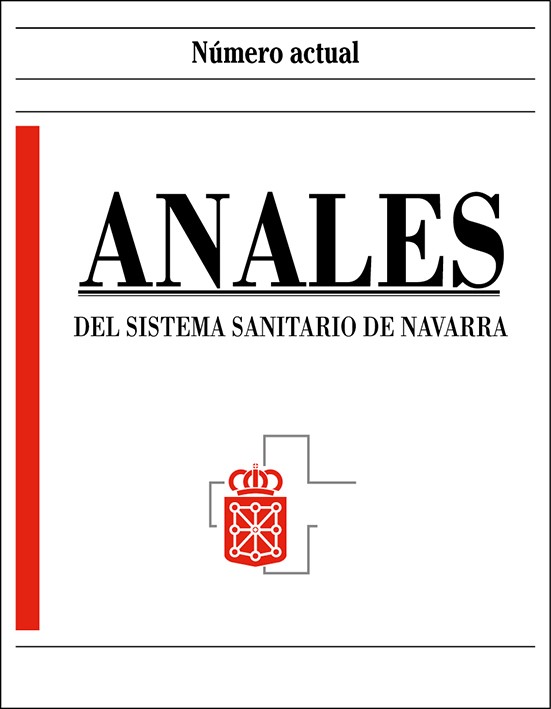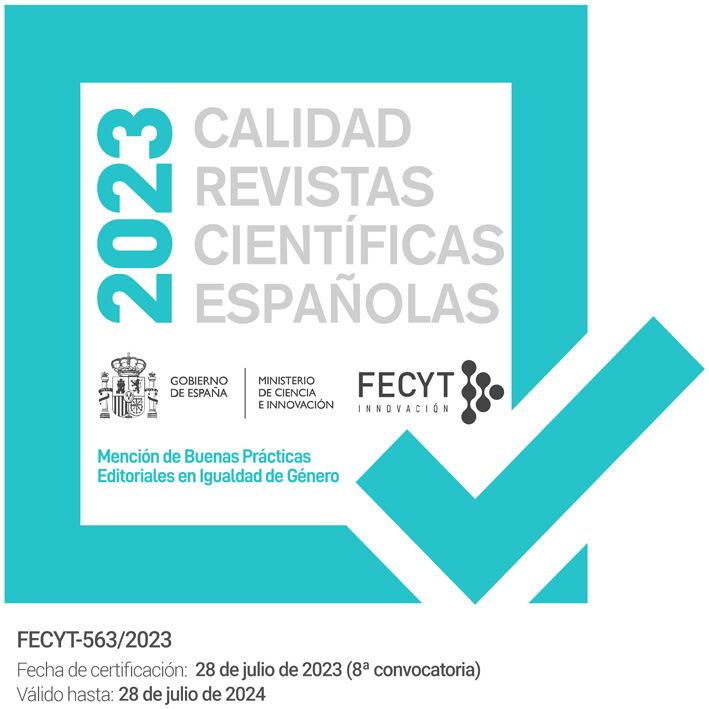Psychosocial risks and their consequences on health and job satisfaction among Spanish police officers
##plugins.pubIds.doi.readerDisplayName##:
https://doi.org/10.23938/ASSN.1058Gako-hitzak:
Police officers, Occupational Stress, Occupational Risks, Occupational Health, Job SatisfactionLaburpena
Background. Police officers are exposed to risk and violence, which makes their work highly stressful. According to the Job Demand-Resource model, the working conditions of police officers may affect their health and job satisfaction. The aims of this research were to evaluate the psychosocial factors at work in a sample of municipal police officers from the Valencian Community (Spain) to identify the prevalence of psychosocial risks and their consequences and analyse the influence of psychosocial factors (resource and demands) at work on job satisfaction and health.
Methods. The Unidad de Investigación Psicosocial de la Conducta Organizacional (UNIPSICO) battery was used to evaluate the prevalence and distribution of different levels of risk and their consequences in police officers (n=103). The influence of psychosocial factors (resource and demands) at work on psychosomatic disorders and job satisfaction was examined using stepwise regression analysis.
Results. All considered variables showed moderate levels of psychosocial risk for the whole sample. As for the consequences of psychosocial risks, moderate levels of psychosomatic disorders and job satisfaction were also observed. Perceived stress levels and organizational stressors have a negative effect on health and job satisfaction.
Conclusions. To create positive conditions for the health and well-being of police officers, real commitment is required when evaluating psychosocial risks in local police organizations and the establishment of prevention and intervention measures where psychosocial risk factors are detected.
##plugins.generic.usageStats.downloads##
Erreferentziak
GALANIS P, FRAGKOU D, KATSOULAS TA. Risk factors for stress among police officers: A systematic literature review. Work 2021; 68(4): 1255-1272. http://doi.org/10.3233/WOR-213455
CIEŚLAK I, KIELAN A, OLEJNICZAK D, PANCZYK M, JAWORSKI M, GAŁĄZKOWSKI R et al. Stress at work: The case of municipal police officers. Work 2020; 65(1): 145-152. http://doi.org/10.3233/WOR-193067
JANG C. The effect of police officers' participatory decision-making, supervisory quality and attitude and organizational justice on job satisfaction: focused on mediating effect of work-life conflict. Int J Adv Cult Technol 2020; 8(2): 68-75. http://doi.org/10.17703/IJACT.2020.8.2.68
MAGNAVITA N, CAPITANELLI I, GARBARINO S, PIRA E. Work-related stress as a cardiovascular risk factor in police officers: a systematic review of evidence. Int Arch Occup Environ Health 2018; 91: 377-389. http://doi.org/10.1007/s00420-018-1290-y
BRADY PQ, KING WR. Brass satisfaction: identifying the personal and work-related factors associated with job satisfaction among police chiefs. Police Q 2018; 21(2): 250-277. http://doi.org/10.1177/1098611118759475
Ley 31/1995, de 8 de noviembre, de Prevención de Riesgos Laborales. Boletín Oficial del Estado 269, de 10 de noviembre de 1995, 1-41. https://www.boe.es/buscar/pdf/1995/BOE-A-1995-24292-consolidado.pdf
KARASEK RA. Job demands, job decision latitude, and mental strain: implications for job design. Admin Sci Q 1979; 24: 285-308. http://doi.org/10.2307/2392498
BAKKER AB, DE VRIES JD. Job demands-resources theory and self-regulation: new explanations and remedies for job burnout. Anxiety Stress Coping 2021; 34(1): 1-21. http://doi.org/10.1080/10615806.2020.1797695
BAKKER AB, DEMEROUTI E. The job demands-resources model: state of the art. J Manag Psychol 2007; 22(3): 309-328. http://doi.org/10.1108/02683940710733115
GUTSCHMIDT D, VERA A. Organizational culture, stress, and coping strategies in the police: an empirical investigation. Police Pract Res 2022; 23(5): 507-522. http://doi.org/10.1080/15614263.2021.1958683
FRANK J, LAMBERT EG, QURESHI H. Examining police officer work stress using the job demands-resources model. J Contemp Crim Justice 2017; 33(4): 348-367. http://doi.org/10.1177/10439862177242
LUCEÑO ML, GARCÍA AY, TALAVERA VB, MARTÍN GJ. Stress in Spanish police force depending on occupational rank, sex, age and work-shift. Psicothema 2016; 28(4): 389-393. http://doi.org/10.7334/psicothema2015.310
CHAN JF, ANDERSEN JP. Influence of organizational stress on reported depressive symptoms among police. Occup Med (Lond) 2020; 70(7): 496-502. http://doi.org/10.1093/occmed/kqaa141
BERLANGA SÁNCHEZ A. Mediación Policial: diseño curricular, formación y buenas prácticas en métodos alternativos de resolución de conflictos y gestión emocional. Tesis Doctoral. Valencia: Universitat de València, 19 de diciembre de 2022. https://hdl.handle.net/10550/84891
GIL-MONTE PR, LÓPEZ-VÍLCHEZ J, LLORCA-RUBIO JL, SÁNCHEZ PIERNAS J. Prevalencia de riesgos psicosociales en el personal de la administración de justicia de la comunidad de Valencia (España). Lib Rev Peru Psicol 2016; 22(1): 7-19. http://doi.org/10.24265/liberabit.2016.v22n1.01
GRAU-ALBEROLA E, GIL-MONTE PR, FIGUEIREDO-FERRAZ H. Influence of work-family conflict on health: A gender perspective. Int J Psychol 2016; 51(1): 754. http://doi.org/10.1002/ijop.12378
GRAU-ALBEROLA E, FIGUEIREDO-FERRAZ H, LÓPEZ-VÍLCHEZ JJ, GIL-MONTE PR. The healthy management: the moderator role of transformational leadership on health workers. An Psicol 2022; 38(1): 128-138. http://doi.org/10.6018/ANALESPS.471121
QUEIRÓS C, PASSOS F, BÁRTOLO A, MARQUES AJ, DA SILVA CF, PEREIRA A. Burnout and stress measurement in police officers: literature review and a study with the operational police stress questionnaire. Front Psychol 2020; 11: 587. https://doi.org/10.3389/fpsyg.2020.00587
ARIAL M, GONIK V, WILD P, DANUSER B. Association of work-related chronic stressors and psychiatric symptoms in a Swiss sample of police officers; a cross sectional questionnaire study. Int Arch Occup Environ Health 2010; 83: 323-331. http://doi.org/10.1007/s00420-009-0500-z
PURBA A, DEMOU E. The relationship between organizational stressors and mental wellbeing within police officers: a systematic review. BMC Public Health 2019; 19: 1286. https://doi.org/10.1186/s12889-019-7609-0
MARCOS A, GARCÍA-AEL C, TOPA G. The influence of work resources, demands, and organizational culture on job satisfaction, organizational commitment, and citizenship behaviors of spanish police officers. Int J Environ Res Public Health 2020; 17(20): 7607. https://doi.org/10.3390/ijerph17207607
TUCKEY MR, CHRISOPOULOS S, DOLLARD MF. Job demands, .resource deficiencies, and workplace harassment: Evidence for micro-level effects. Int J Stress Manage 2012; 19(4): 292-310. https://doi.org/10.1037/a0030317
SWID A. Police members perception of their leaders’ leadership style and its implications. Policing 2014; 37(3): 579-595. https://doi.org/10.1108/PIJPSM-08-2013-0085
ANDERSEN JP, GUSTAFSBERG H. A training method to improve police use of force decision making: a randomized controlled trial. SAGE Open 2016; 6(2): 1-13. https://doi.org/10.1177/2158244016638708
BAKA L. The effects of job demands on mental and physical health in the group of police officers. Testing the mediating role of job burnout. Studia Psychol 2015; 57(4): 285-299. https://doi.org/10.21909/SP.2015.03.700
RHODES TN. Officers and school settings: examining the influence of the school environment on officer roles and job satisfaction. Police Q 2015; 18(2): 134-162. https://doi.org/10.1177/1098611114559038
ALEXOPOULOS EC, PALATSIDI V, TIGANI X; DARVIRI C. Exploring stress levels, job satisfaction, and quality of life in a sample of police officers in Greece. Saf Health Work 2014; 5(4): 210-215. https://doi.org/10.1016/j.shaw.2014.07.004
VIOLANTI JM, CHARLES LE, MCCANLIES E, HARTLEY TA, BAUGHMAN P, ANDREW ME et al. Police stressors and health: a state-of-the-art review. Policing 2017; 40(4): 642-656. https://doi.org/10.1108/PIJPSM-06-2016-0097
FIGUEIREDO-FERRAZ H, GRAU-ALBEROLA E. Estrés laboral y síndrome de quemarse por el trabajo (burnout) En: Gil-Monte PR (ed). Prevención y tratamiento del síndrome de quemarse por el trabajo. 1ª ed. Madrid: Ediciones Pirámide, 2019; 43-58.
GOTH J, PFEFFER J, ZENIOS SA. Workplace stressors and health outcomes: health policy for the workplace. Behav Sci Policy 2015; 1(1): 43-52. https://doi.org/10.1353/BSP.2015.0001
##submission.downloads##
Argitaratuta
##submission.howToCite##
Zenbakia
Atala
##submission.license##
##submission.license.cc.by-sa4.footer##La revista Anales del Sistema Sanitario de Navarra es publicada por el Departamento de Salud del Gobierno de Navarra (España), quien conserva los derechos patrimoniales (copyright ) sobre el artículo publicado y favorece y permite la difusión del mismo bajo licencia Creative Commons Reconocimiento-CompartirIgual 4.0 Internacional (CC BY-SA 4.0). Esta licencia permite copiar, usar, difundir, transmitir y exponer públicamente el artículo, siempre que siempre que se cite la autoría y la publicación inicial en Anales del Sistema Sanitario de Navarra, y se distinga la existencia de esta licencia de uso.








